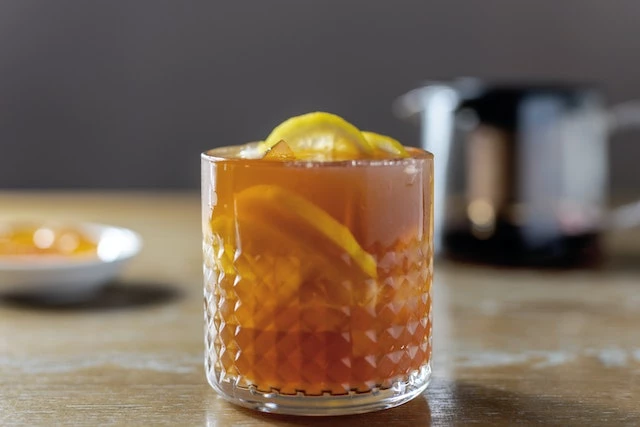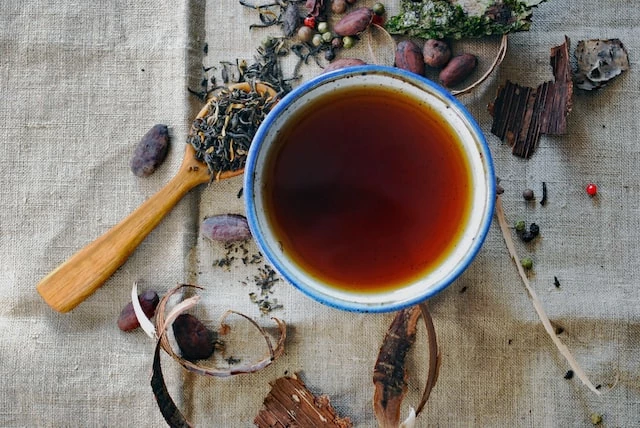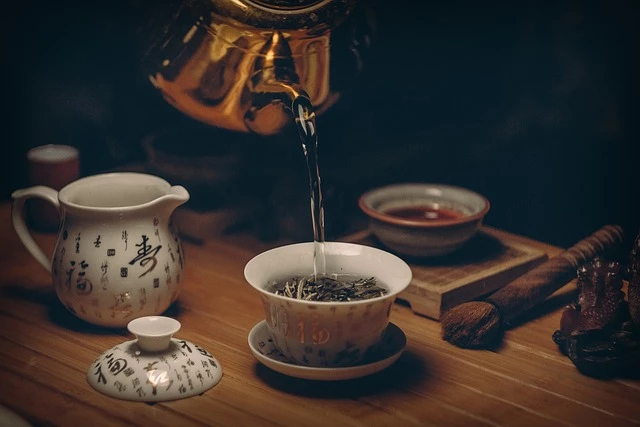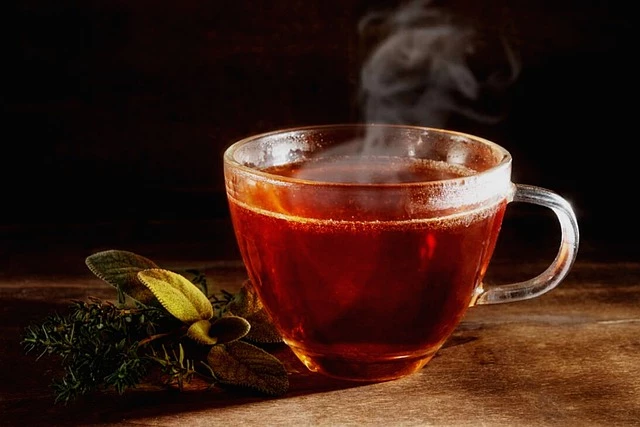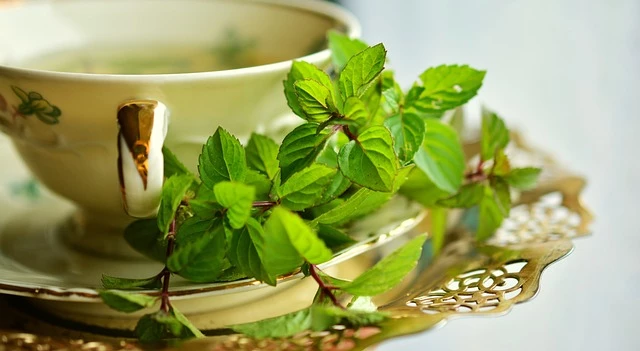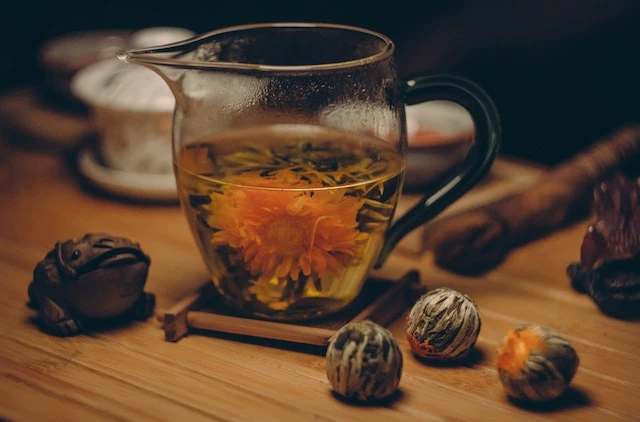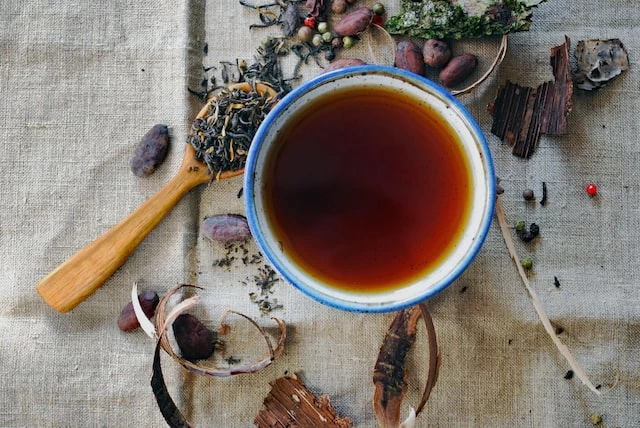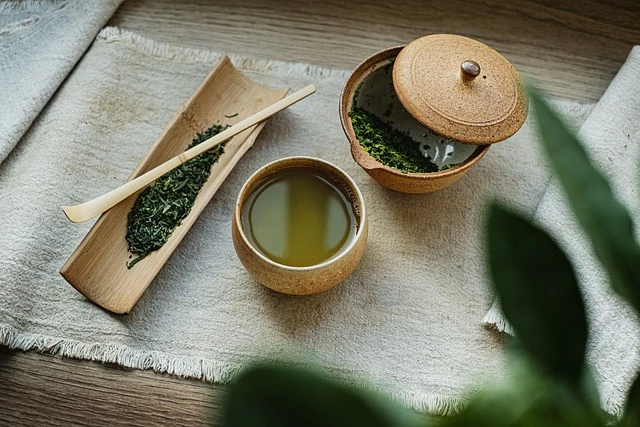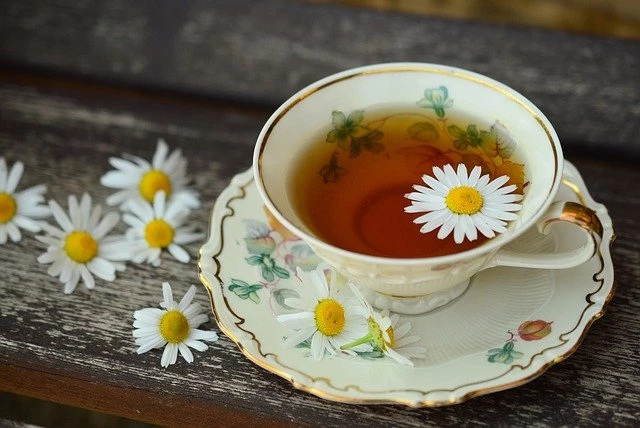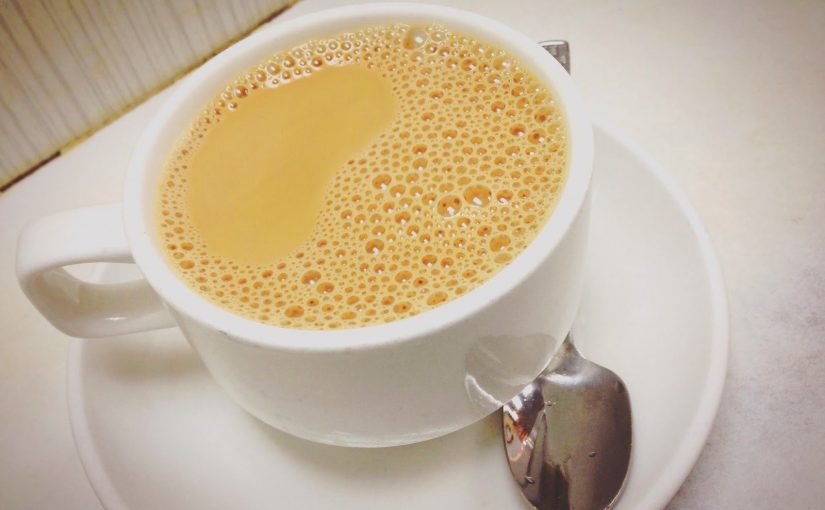Does White Tea Have Caffeine?
Jan 13 2023 Tea Caffeine Content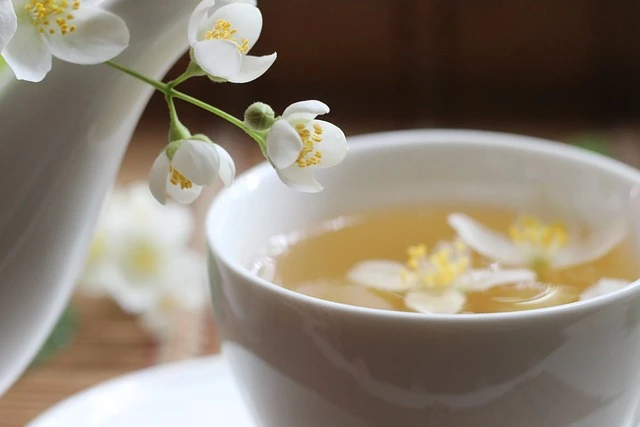
White tea may be a sort of tea that’s made from the young leaves and buds of the Camellia sinensis plant. It is considered to be one of the slightest-handled sorts of tea and is known for its sensitive flavor and smell. One of the components of tea clears out is caffeine, a stimulant that can influence the central anxious framework. Hence, yes white tea does contain caffeine, in spite of the fact that the sum can change depending on the sort of white tea and the brewing strategy utilized.
What is White Tea?
White tea is a type of tea that is made from the young leaves and buds of the Camellia sinensis plant. The leaves and buds are plucked before they are fully open and are allowed to wither and dry in natural sunlight. This minimal processing preserves the delicate flavor and aroma of the tea.
It is considered to be one of the slightest prepared sorts of tea, and it is known for its sensitive, unpretentious flavor and light, brilliant color. It is made from the same plant as other sorts of tea such as green tea, oolong tea, and black tea, but white tea is gathered at a distinctive organize of the plant’s development, and it’s handled in an unexpected way.
White tea is typically harvested in early spring, when the buds are still covered in fine white hair, giving the tea its name. This tea is minimally processed and is left to wilt and dry in natural sunlight, this gives white tea a unique taste profile and a higher concentration of antioxidants than other teas.
It is considered to be one of the purest and most normal teas, and it is accepted to have numerous well-being benefits, counting ensuring against heart illness, lessening the chance of cancer, and advancing solid skin.
How Much Caffeine is in White Tea?
So, yes white tea contains caffeine, be that as it may, the caffeine substance in white tea can shift depending on a few variables, counting the sort of white tea, the developing conditions, the time of year it was collected, and the brewing strategy utilized.
On normal, a glass of white tea (8 oz) contains approximately 15 to 30 milligrams of caffeine. Usually less than the sum of caffeine found in a container of dark tea, which regularly contains 35 to 45 milligrams of caffeine, and essentially less than a glass of coffee, which contains around 95 milligrams of caffeine. Be that as it may, it’s critical to note that a few white teas can contain more caffeine than others, depending on the assortment of tea plants utilized, and the developing conditions.
It’s also worth noting that a few white teas are mixed with other herbs or natural products, which can moreover influence the caffeine substance. For illustration, white tea mixed with jasmine blossoms can contain more caffeine than unblended white tea, as the jasmine blossoms are included after the tea clears out have been prepared.
The caffeine substance in white tea can change, and it’s best to check the bundling or inquire the provider for more data approximately the particular sort of white tea you’re fascinated by. Also, brewing time and temperature are key factors that can influence the sum of caffeine in your container of tea.
One of the components of tea that take off is caffeine, a stimulant that can influence the central apprehensive framework. The caffeine substance in white tea can shift depending on a few variables, counting the sort of white tea, the developing conditions, the time of year it was collected, and the brewing strategy utilized.
On normal, a container of white tea (8 oz) contains around 15 to 30 milligrams of caffeine. Typically less than the sum of caffeine found in a glass of dark tea, which regularly contains 35 to 45 milligrams of caffeine, and altogether less than a container of coffee, which contains approximately 95 milligrams of caffeine. In any case, it’s vital to note that a few white teas can contain more caffeine than others, depending on the assortment of tea plants utilized, and the developing conditions.
It’s moreover worth noticing that a few white teas are mixed with other herbs or natural products, which can moreover influence the caffeine substance. For case, white tea mixed with jasmine blooms can contain more caffeine than unblended white tea, as the jasmine blossoms are included after the tea clears out have been prepared.
The caffeine substance in white tea can change, and it’s best to check the bundling or inquire the provider for more data about the particular sort of white tea you’re inquisitive about. Moreover, brewing time and temperature are key factors that can influence the sum of caffeine in your container of tea.
What are the Benefits of Caffeine White Tea?
The caffeine content in white tea can have several benefits when consumed in moderation, including:
Increased Energy and Alertness
Caffeine is a stimulant that can help to increase energy and alertness, making it a popular choice for people who need to stay awake and focused during the day.
Improved Physical Performance
Caffeine can also help to improve physical performance by increasing endurance and reducing fatigue, making it a popular choice for athletes and fitness enthusiasts.
Enhanced Cognitive Function
Caffeine can help to improve cognitive function, including memory, attention, and reaction time, making it a popular choice for students and professionals.
Reduced Risk of Certain Diseases
Some studies have suggested that caffeine consumption may be associated with a reduced risk of certain diseases, including Parkinson’s disease, type 2 diabetes, and liver disease.
Helping with weight loss
Caffeine is thermogenic which means it helps to increase the metabolic rate and burn more fat, this is why caffeine is often found in weight loss supplements.
It’s important to note that excessive caffeine consumption can lead to negative side effects such as anxiety, jitteriness, insomnia, and heart palpitations. It’s recommended to limit the intake to less than 300mg/day, which is about 3 cups of white tea. It’s also important to consider that white tea, as well as other types of teas, have other beneficial compounds like antioxidants which can have additional health benefits. Check out all the tea that helps with anxiety and insomnia.
How to Reduce Caffeine in White Tea?
There are a few ways to reduce caffeine content in white tea:
Shorten the steeping time
The longer the tea is steeped, the more caffeine will be released into the water. To reduce the caffeine content, steep the tea for a shorter period of time, such as 1-2 minutes.
Use cooler water
Caffeine is more soluble in hot water than in cool water. To reduce the caffeine content, brew the tea using cooler water, such as 160-180F (70-80C).
Use fewer tea leaves
The more tea leaves you use, the more caffeine will be released into the water. To reduce the caffeine content, use fewer tea leaves.
Remove the leaves after steeping
Once the tea has finished steeping, remove the leaves from the water to stop the release of caffeine.
These methods may reduce the caffeine content but they can also affect the taste and aroma of your tea, and some of the benefits that come with it. Therefore, it’s recommended to consult with a specialist or a tea master before applying these methods.
Is Decaffeinated White Tea as Good as Regular White Tea?
Decaffeinated white tea may be a sort of white tea that has had most of the caffeine evacuated from it. The method of decaffeination typically involves steaming or drenching the tea clears out in the water and after that employing a dissolvable, such as methylene chloride, to extricate the caffeine. While this preparation evacuates most of the caffeine, it can moreover evacuate a few of the other advantageous compounds found within the tea takes off, such as antioxidants, flavonoids, and amino acids.
Decaffeinated white tea may be less flavorful than customary white tea since the method of decaffeination can also influence the taste and smell of the tea. A few individuals may discover that the taste of decaffeinated white tea is less fulfilling, or that the tea features a more quiet smell.
In terms of health benefits, regular white tea has been shown to have many benefits, including protecting against heart disease, reducing the risk of cancer, and promoting healthy skin. Decaffeinated white tea, howIn terms of well-being benefits, customary white tea has appeared to have numerous benefits, counting ensuring against heart disease, reducing the risk of cancer, and advancing sound skin. Decaffeinated white tea, in any case, has not been examined as broadly, so it’s vague in the event that it has the same benefits as standard white tea.
If you’re searching for a tea with less caffeine or caffeine affectability, decaffeinated white tea can be an alternative. But, it’s worth noticing that the taste and the well-being benefits may be influenced. It’s moreover worth noticing that the decaffeination preparation may not remove 100% of the caffeine.
Which Type of White Tea has the Most Caffeine?
There are several types of white tea, and the caffeine content can vary depending on the specific variety of tea plant used the growing conditions, and the time of year it was harvested. Here are some types of white tea, along with their approximate caffeine levels:
Silver Needle
This is considered to be the highest grade of white tea and is made from only the buds of the tea plant. It has a delicate, sweet flavor and a light, golden color. It contains around 15-20mg of caffeine per 8 oz serving.
White Peony (Bai Mudan)
This type of white tea is made from a mix of buds and leaves, and it has a slightly stronger flavor than Silver Needle. It contains around 20-25mg of caffeine per 8 oz serving.
Long Life Eyebrow (Shoumei)
This type of white tea is made from leaves that are allowed to mature before being harvested. It has a stronger flavor than Silver Needle and White Peony and contains around 20-30mg of caffeine per 8 oz serving.
Tribute Eyebrow (Gongmei)
This type of white tea is made from leaves that are allowed to mature even more than Long Life Eyebrow. It has a stronger flavor and a darker color than other types of white tea and contains around 25-35mg of caffeine per 8 oz serving.
Does White Tea Have More Caffeine Than Green Tea?
White tea and green tea both come from the Camellia Sinensis plant and then clear out of both teas contain caffeine. Be that as it may, the sum of caffeine in white tea and green tea can change depending on the particular assortment of tea plants utilized, the developing conditions, and the handling strategy.
On average, a cup of green tea contains approximately 20-35 milligrams of caffeine, though a glass of white tea contains approximately 15-30 milligrams of caffeine. This implies that white tea by and large has less caffeine than green tea.
It’s worth noticing that the caffeine substance can shift depending on the particular developing conditions and the time of year that the tea was gathered, and it’s best to check the bundling or inquire the provider for more data almost the particular sort of white tea you’re fascinated by. Moreover, brewing time and temperature are key factors that can influence the sum of caffeine in your container of tea. Longer brewing time or higher temperature increments the sum of caffeine within the tea.
In general, if you are looking for a tea that contains less caffeine than green tea, white tea may be a great alternative. Be that as it may, it’s imperative to keep in mind that whereas white tea by and large contains less caffeine than green tea, it’s still a source of caffeine, so it’s best to devour it in balance.
The Final Thoughts
In conclusion, white tea, like all sorts of tea, contains caffeine, which could be a stimulant that can influence the central apprehensive framework. The sum of caffeine in white tea can shift depending on the sort of white tea, the developing conditions, and the brewing strategy utilized. Whereas caffeine can have both positive and negative impacts, it’s vital to devour white tea in balance and check the caffeine substance of the specific type of white tea you’re inquisitive about. Furthermore, white tea contains other advantageous compounds like cancer prevention agents, which can have extra well-being benefits.
Also, read our other articles about caffeine content!
Does Tea Have Caffeine?
Does Black Tea Have Caffeine?
Does Green Tea Have Caffeine?
Does Herbal Tea Have Caffeine?
Does Rooibos Tea Have Caffeine?
Does Oolong Tea Have Caffeine?
Does Pu erh Tea Have Caffeine?
Does Sweet Tea Have Caffeine?
Does Iced Tea Have Caffeine?
Does Yerba Tea Have Caffeine?
Caffeine in Tea vs Coffee
